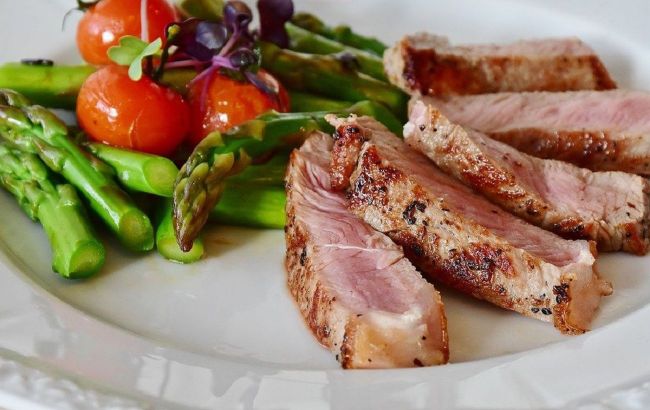These 2 diet mistakes make blood thick
 Which foods can thicken the blood (Photo: freepik.com)
Which foods can thicken the blood (Photo: freepik.com)
The condition of the blood directly affects the functioning of the entire body, especially the cardiovascular system. Thick blood, or blood with increased viscosity, circulates less effectively through the vessels, which increases the risk of blood clots, heart attacks, and strokes.
Although the causes of this condition can vary, doctors and nutritionists increasingly point to a direct link with dietary habits. It turns out that two common dietary mistakes can significantly contribute to the thickening of the blood.
Mistake #1: Inadequate fluid intake
Water is the foundation of blood plasma. When the body is dehydrated, the liquid part of the blood decreases, while the concentration of blood cells (red blood cells, platelets) and proteins increases. This directly leads to an increase in blood viscosity. Many people fail to consume their daily required amount of fluids, often relying on coffee or sugary drinks, which can even worsen dehydration due to their diuretic or osmotic effect.
Try to drink at least 1.5-2 liters of still water per day. This is an average recommendation and may vary depending on weight, activity level, and climate conditions. Additional sources of fluid can include herbal teas without sugar, unsweetened compotes, as well as fruits and vegetables with high water content (cucumbers, watermelons, celery). It's important to drink consistently throughout the day, rather than waiting for intense thirst, as the feeling of strong thirst is already a signal of dehydration.
Mistake #2: Excessive intake of saturated fats, trans fats, and simple carbohydrates
An unbalanced diet rich in harmful fats and sugar negatively affects the condition of blood vessels and the rheological properties of the blood.
Saturated fats and trans fats
These are found in large quantities in fatty meats, sausages, butter, margarine, fast food, and many baked goods. They contribute to raising bad cholesterol (LDL), the formation of atherosclerotic plaques on blood vessel walls, and can provoke inflammatory processes, which indirectly affect blood viscosity.
Simple carbohydrates and sugar
Excessive consumption of sugar, sweets, white flour baked goods, and sugary sodas causes sharp fluctuations in blood glucose levels. This can lead to inflammation, damage to the endothelium (the inner lining of blood vessels), and negatively affect the lipid profile, which also thickens the blood.
How to correct this
Reduce the intake of foods rich in saturated and trans fats. Opt for lean cuts of meat, fish, and skinless poultry. Include healthy unsaturated fats in your diet, such as olive oil, avocado, nuts, and seeds. Limit sugar and products made with white flour. The foundation of your diet should consist of whole-grain products, vegetables, fruits, and legumes, which are rich in fiber that helps normalize cholesterol and blood sugar levels.
Thick blood is not a standalone diagnosis but a condition that increases the risk of cardiovascular diseases. If you have suspicions or risk factors (genetics, excess weight, smoking, sedentary lifestyle), make sure to consult a doctor.
Only a specialist can conduct necessary tests (such as a coagulation profile) and provide personalized recommendations regarding lifestyle and diet adjustments or prescribe treatment if needed. Simple changes to your daily diet can be an important step toward maintaining the health of your blood vessels and heart.
You may be interested in
The following sources were used in this material - American Heart Association, Harvard T.H. Chan School of Public Health, WHO.
This material is for informational purposes only and should not be used for medical diagnosis or self-treatment. Our goal is to provide readers with accurate information about symptoms, causes, and methods of detecting diseases. RBС-Ukraine is not responsible for any diagnoses that readers may make based on materials from the resource. We do not recommend self-treatment and advise consulting a doctor in case of any health concerns.

